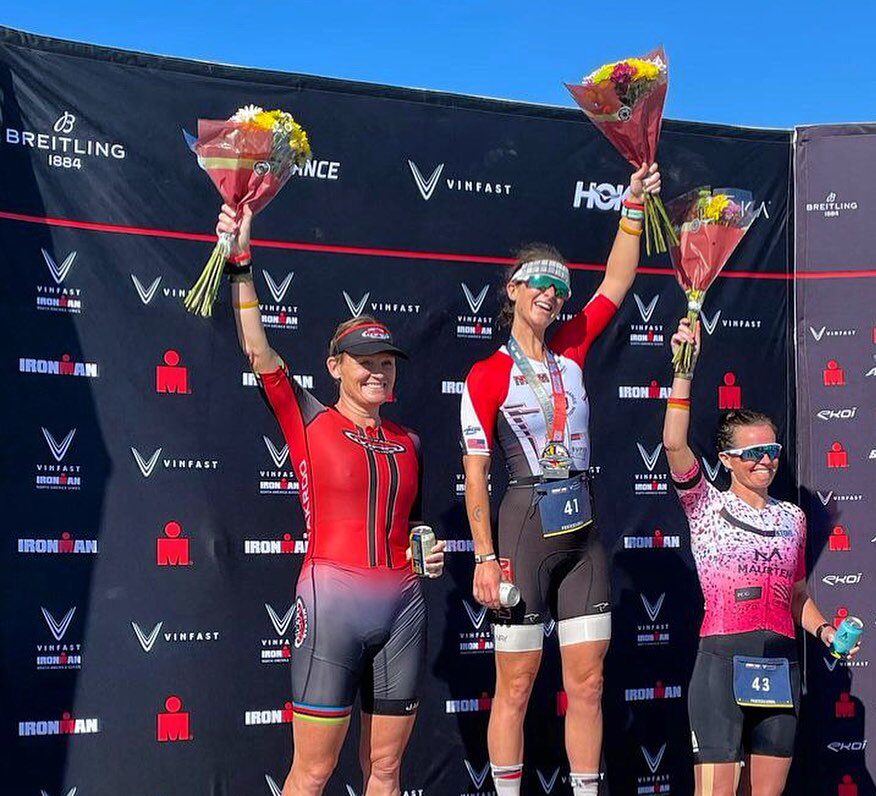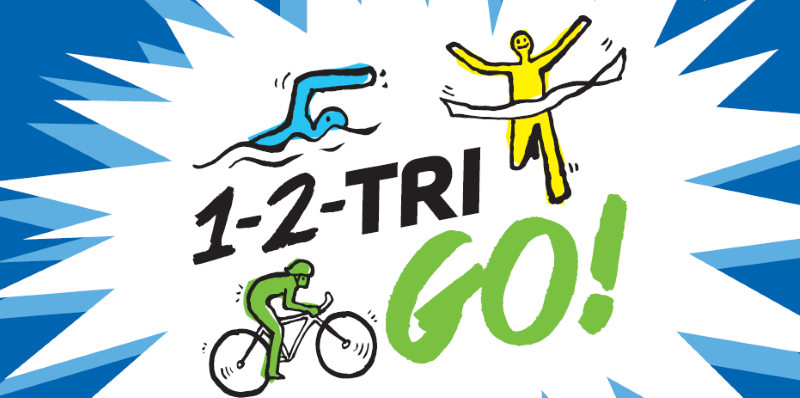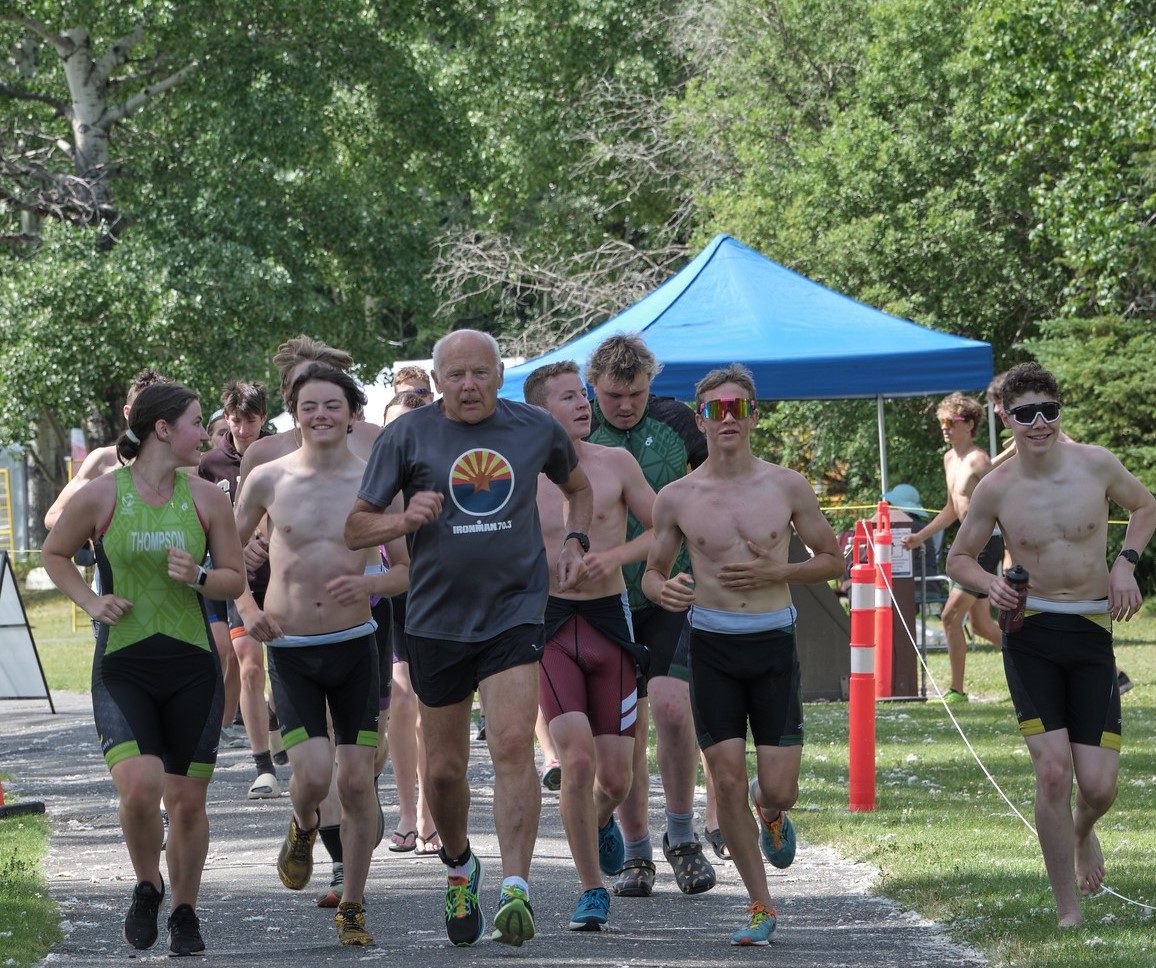We caught up with triathlon phenom Melanie McQuaid, who’s had an incredible pro season so far and heading to Ironman Hawaii in a week!
Congratulations on your Pro podiums this year at the Ironman Maryland and Ironman Coeur d’Alene!
Thanks so much. This has been a dream season.
Can you share a short highlight or learning from those events?
Every event I do I learn something. In Maryland I was excited to execute the late race pass that I didn’t accomplish in CDA and I am sure the experience from CDA led to that success. Maryland had a lot of strong cycling girls riding together which is useful experience for Kona. I had some bike fit related changes I made going into Maryland that I believe were helpful and will help me in Kona. Ultimately every race is an opportunity to fine tune your execution and commitment to doing so. I am getting better at that.
With your qualification to Ironman Hawaii, What does your preparation look like for you with the event being a week away from the event?
With only 4 weeks between Ironman events there is not a lot of training other than heat acclimatization. There’s not enough time to really train for improvement and instead it is mostly maintaining the qualities I want to carry into Kona while maximizing the freshness I need for such a hot race. I am doing little bits of work in hot temperatures and monitoring how I am responding to it. I think I will only have clear data on how to manage pacing even later next week as my heat training starts to materialize.. so I am just being conservative and patient for now.
Do you have any specific goals for Ironman Hawaii?
Savage execution of my plan. Zero expectation for outcome. I am going to enjoy being a 50 year old rookie to the maximum.
Let’s take a step back… Can you share a bit of your history: What sports did you compete in as a Junior, or young athlete? any notable results?
I have a couple years in high school racing this and that. A couple years on the swim time, a year of track, some cycling races.. but no training and nothing serious. I really only started racing in 1993 when I was headhunted to a Canada Games team and that launched my cycling career. I went to the Hornby Bike Festival, won that and that really inspired me to try to be a pro mountain bike racer like Alison Sydor.
You spend a large part of your career road cycling and mountain bike racing… Can you share a highlight from each of those disciplines, and how that part of your career helped develop you for your triathlon success?
Being a mountain bike racer was why I was invited to XTERRA World Championships. The Hawaii Mountain Tour was organized by the same people who started XTERRA and they loved the idea of mountain bikers taking on triathletes in an offroad triathlon. Encouragement from the race director Dave Nicholas was what had me fly from the Road Worlds in France to XTERRA Worlds in Hawaii. I took second on my first try at the event and was hooked.
What was the hardest part when you decided to move into Triathlon racing?
Cycling and running have different demands on the muscles so balancing that is challenging. It took me a long time to figure out how to both ride fast and run fast concurrently.
You have won an incredible amount of triathlon events, and been awarded triathlon of the year too many times to count… What keeps you motivated to keep pushing at such a high level?
I have a values-based approach to racing. My personal values are growth and health..and every decision I have basically revolves around whether it will contribute to these values. My primary goal as a pro is to use my racing to deliver experiencial learning for my coaching. There are no bad days with this approach, only lessons I’ll appreciate long after I decide I am finished with pro racing. I think if athletes avoid asking what they can have or get from racing (a PR, a win, a time) and instead looks at what they can experience through racing (a community, great health, travel, exciting events…) they will find their athletic career is infinitely sustainable. That is where my business tagline comes from: Train for a rad life. There is so much more than PRs in sport if you choose to approach it differently. Of course, I want to race at a very high level, so the outcome of efforts is still important but you are much more likely to achieve that with the curious mindset geared towards experience that I espouse.
With the amount of mileage you put in for training and racing, what are your favourite shoes to wear?
I mix up a variety of shoes in training. I avoid carbon shoes most of the time as I believe they are unnecessary risk to feet and ankles. I like running trails in trail shoes and using race flats for fast work and sometimes a cushiony shoe just to give the tissues a break.
How have you seen women’s sport evolve over the past 10 years, and what do you think the future holds for women in sport?
The sky is the limit. I think women are going to come into the sport more, stay longer, and continue to push the level higher and higher. I am excited that there appears to be more interest in sport science revolving around female bodies that will help to explain what coaches are seeing in female athletes.
You operate your own coaching business called MelRad – Can you share a bit about your coaching and programs?
I coach a squad of athletes both one on one and via consultations where athletes can access me for advice or one-on-one personalized coaching. I also offer a Monday Mobility class where I help athletes build fundamental athleticism required to stay healthy during endurance training. I coach all levels of adults and offer skill camps over the winter.
How has your coaching, training, and racing evolved over the past 10 or 20 years? Are there any new insights, learnings, or programs that you’ve been really excited about?
I have really evolved over the past 20 years. I love learning about coaching, physiology, and psychology and feel like every year I am improving a lot as a coach. I am so appreciative of the availability of sport science to coaches now, it is amazing how much more literature is available versus even 10 years ago which helps us as coaches make much more informed decisions in training. I am really proud of my evolution as a coach having spent 3 years mentoring at ALTIS with Dan Pfaff.. that was probably the single most valuable investment I made in myself as a coach. I also have done a ton of work on my strength training knowledge. But still I am in a place of “what I believe I think I know” as Stu McMillan would put it where I know what I know now and know that what I know in the future might be much different. I plan to continue learning for the rest of my life.
Where do you see yourself and MelRad coaching 10 years in the future?
I think this is the question I wrestle with the most. I honestly have no expectation or plans right now. I like coaching… I am not interested in a big business to run. So what that looks like we will see!
For a simple question: What’s on your pre race, or training, playlist?
I am actually better to quiet things down and meditate pre race. Training is a combination of obnoxious hip hop music and loud top 40 hits.
What advice would you have for any new athletes starting their triathlon journey?
Consider what you core values are in life and incorporate sport in a way that reflects and enhances those values. Doing so will keep you connected the the process of improvement versus achievement and will keep you sustainably motivated over the long term. You then have an infinite lifespan in sport.
Thanks so much for your time, congratulations on your performances so far this year, and we’re looking forward to seeing more great results in the future!
Thank you again for the opportunity. So proud to be representing the province of BC.




